Mobile EdTech startups are changing how students in Africa access education, especially in areas with limited resources and teacher shortages. These platforms provide affordable, localized, and mobile-friendly learning solutions tailored to the continent’s unique challenges. Here’s a quick look at five standout startups:
- Tuteria: Connects learners with verified tutors for personalized lessons in academics and practical skills.
- AltSchool Africa: Focuses on tech skills like software engineering and cybersecurity for Africa’s youth.
- Codepym: Teaches coding to underserved communities, emphasizing accessibility for girls and women.
- Teesas: Offers offline video lessons in local and international languages with engaging animations.
- uLesson: Delivers curriculum-aligned video lessons with offline access and interactive quizzes.
These platforms are bridging education gaps by leveraging mobile technology to make learning accessible, engaging, and relevant for students across Africa.
Transforming Africa’s edtech sector
1. Tuteria
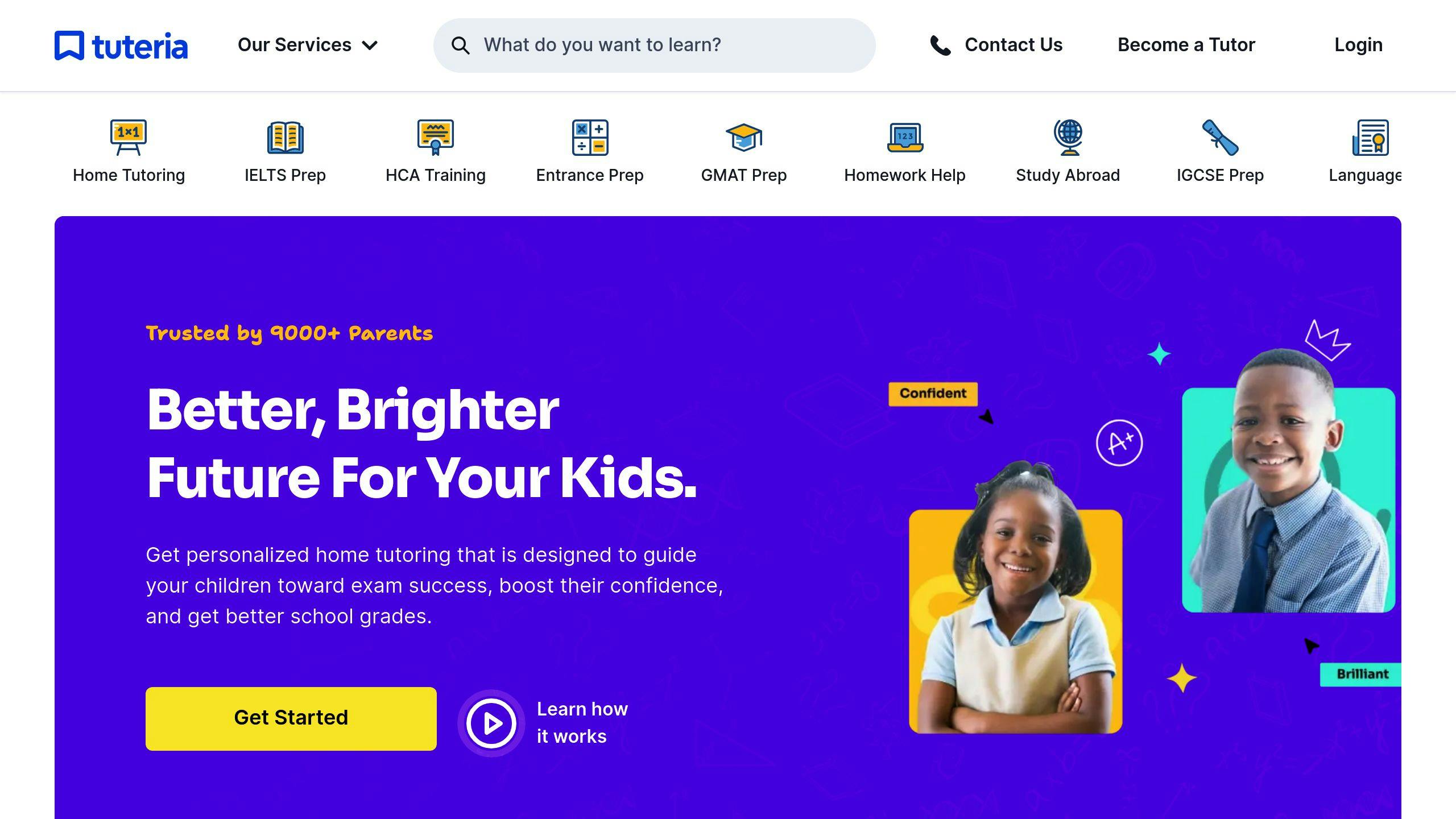
Launched in 2015 by systems engineers Godwin Benson and Abiola Oyeniyi, Tuteria is a mobile platform that connects learners in Nigeria with qualified tutors. It offers a wide range of subjects, from traditional academics to practical skills like music, languages, and computer science.
The platform uses a thorough tutor verification process to ensure quality and reliability. It operates on a commission-based model (15-30%) that supports:
- A strict screening process for tutors
- Access to underserved areas through mobile technology
- Promoting digital literacy
- Personalized, one-on-one learning experiences
Tuteria has earned accolades like the Internet.org Innovation Challenge (2016) and the Africa Prize for Engineering Innovation (2017) [1]. By addressing the shortage of teachers and leveraging mobile technology, it’s helping reshape education in Africa. Its approach not only meets the growing demand for quality education but also keeps it affordable and accessible.
This mobile-first strategy highlights the potential for EdTech growth in Africa, paving the way for platforms like AltSchool Africa.
2. AltSchool Africa
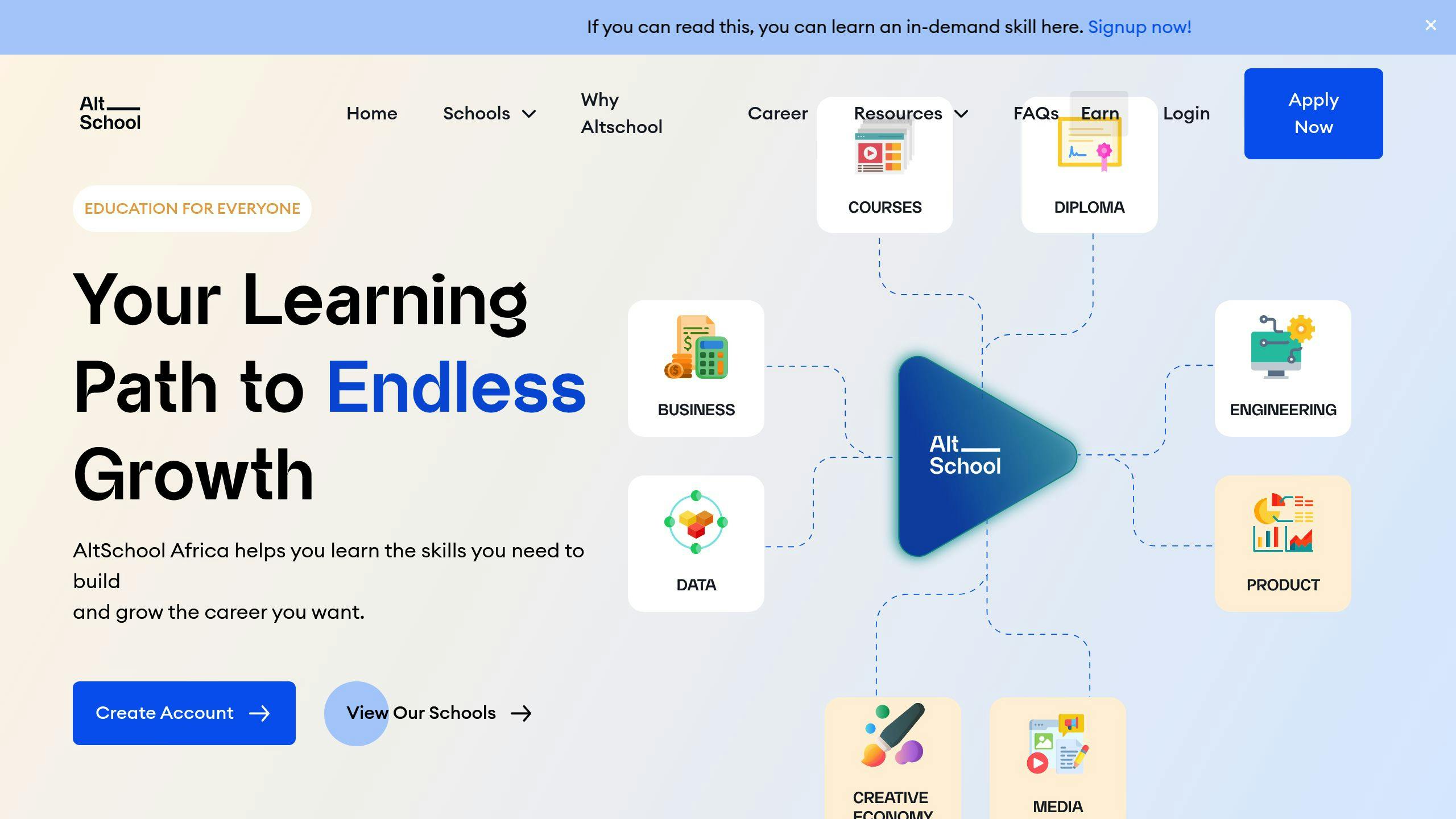
AltSchool Africa is a mobile-focused platform aimed at narrowing Africa’s tech skills gap by providing software engineering and cybersecurity education tailored specifically for the continent’s youth. With Africa’s youth population growing rapidly, the platform addresses the pressing need for accessible tech education through mobile-friendly learning tools.
What sets AltSchool Africa apart is its partnership with industry leaders to design courses aligned with current job market demands. This ensures students are well-prepared for careers in software engineering and cybersecurity. By delivering content optimized for mobile devices, the platform allows students to learn from virtually anywhere, even in regions with limited access to traditional educational infrastructure.
"The key to unlocking Africa’s potential lies in equipping its growing young population with the skills and tools they need to succeed in the digital age."
AltSchool Africa tackles youth unemployment by teaching skills that are in high demand. Using mobile technology, the platform ensures that even students in remote areas can access quality tech education. This combination of accessibility and high standards plays a crucial role in shaping the continent’s future tech workforce.
AltSchool Africa demonstrates how mobile technology can close gaps in education and employment, paving the way for similar platforms such as Codepym.
sbb-itb-dd089af
3. Codepym
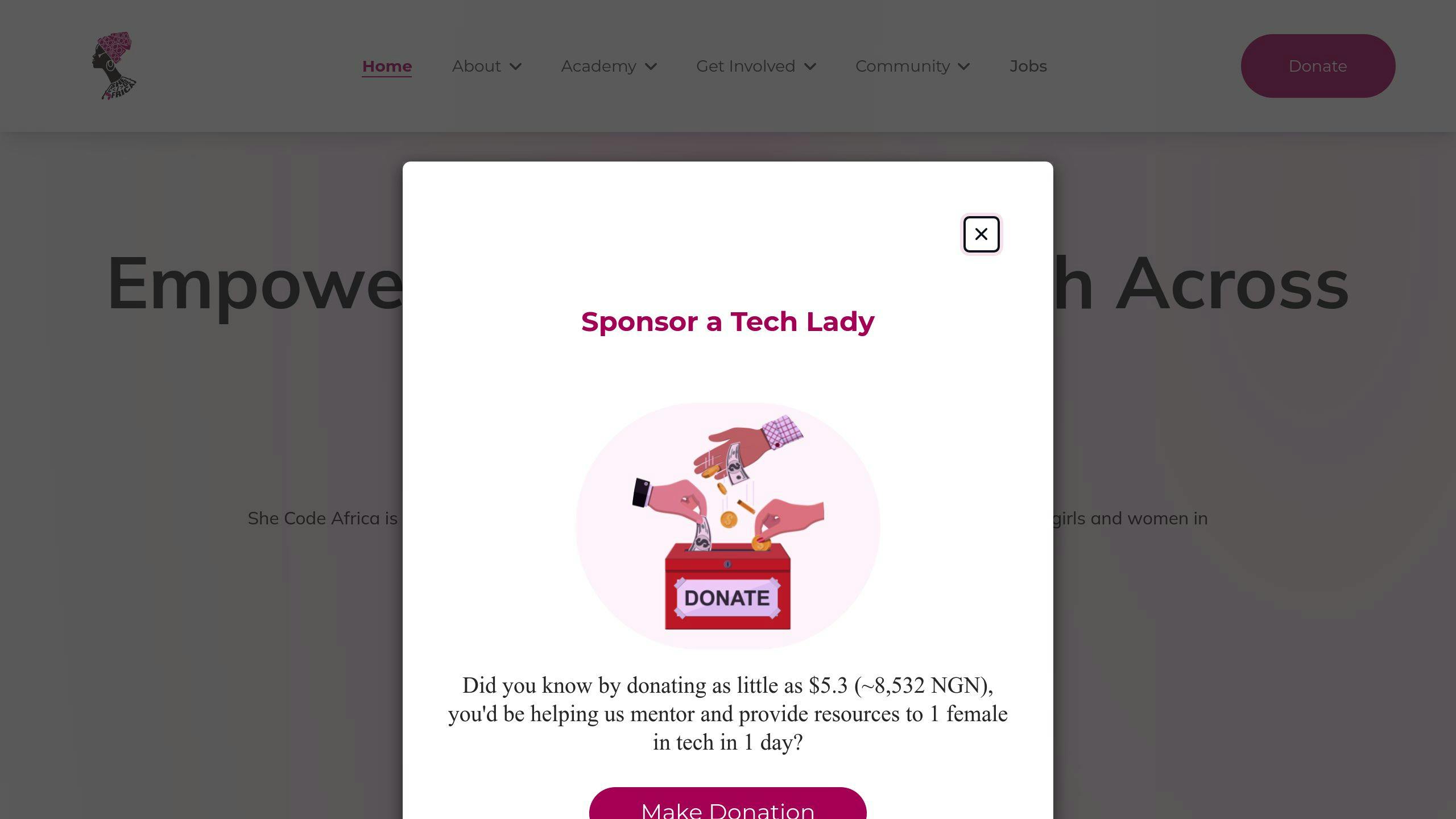
Codepym plays a key role in Africa’s digital education space, focusing on teaching coding to young people in underserved areas. Its mission aligns with the rising demand for digital skills across the region.
The platform prioritizes mobile-first learning, making coding education accessible even in areas with limited infrastructure. By combining mobile courses with locally organized programs, Codepym brings digital education directly to communities that need it most.
One of Codepym’s standout features is its commitment to accessibility. Using mobile technology, it ensures that girls and women in underserved areas have equal opportunities to learn coding, opening doors to better prospects in the digital economy. This is especially important in regions where traditional education options are scarce.
4. Teesas
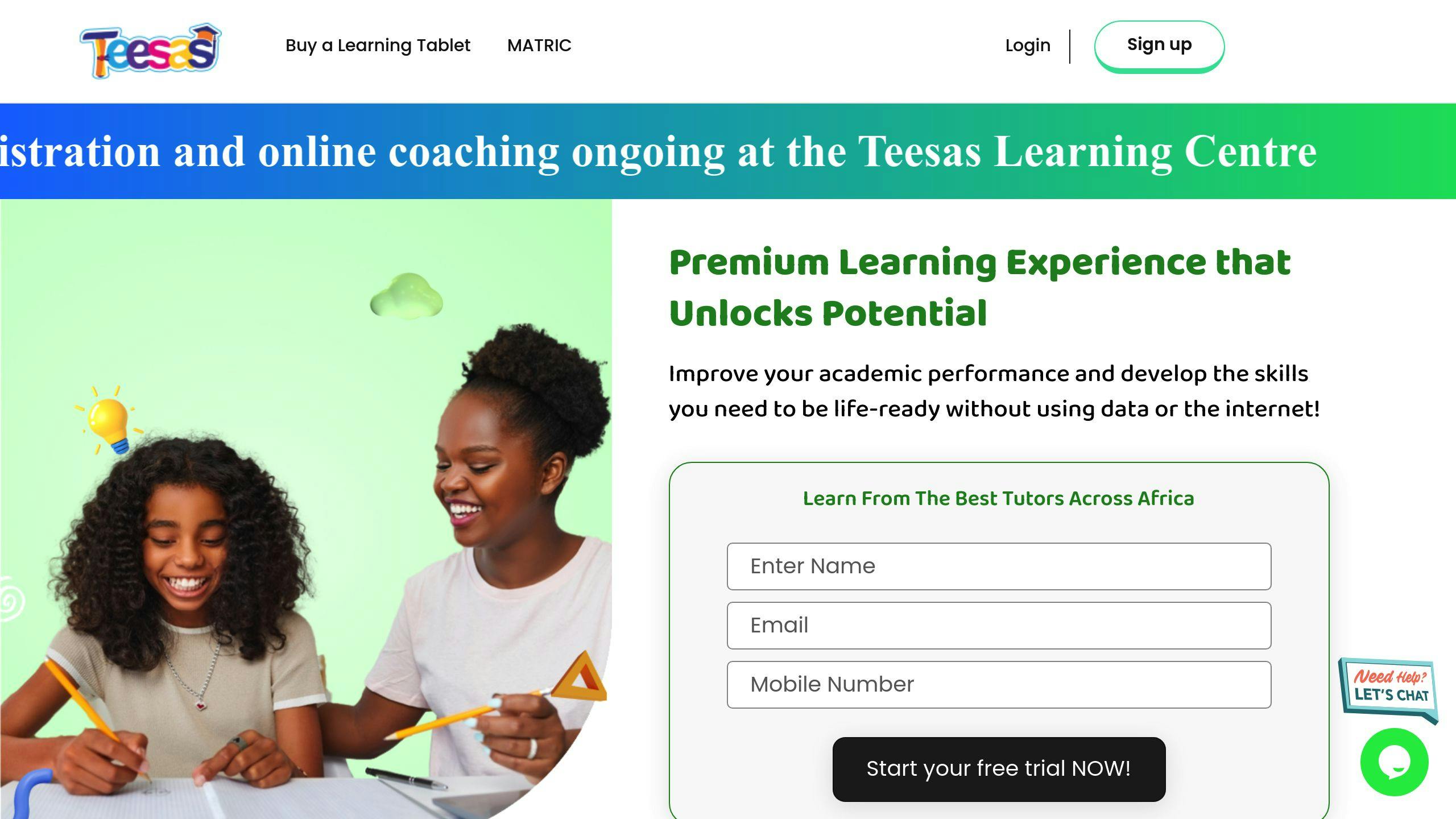
Teesas provides offline video lessons in dual languages, making it possible for students to learn even without internet access. Lessons are delivered by African tutors who teach in both Nigerian and international languages, ensuring the material connects with a wide range of learners. The platform simplifies tough topics using engaging animations and musicals, making learning fun and effective.
To keep parents informed, Teesas uses AI-powered tools to provide real-time updates on student progress. Additionally, the platform has donated tablets to schools and orphanages in underserved areas, helping close the digital gap [2].
What makes Teesas stand out:
- Lessons available offline for areas with poor internet connectivity
- Engaging animations and musical content to simplify learning
- Real-time progress updates for parents
- Support for both local and international languages
5. uLesson
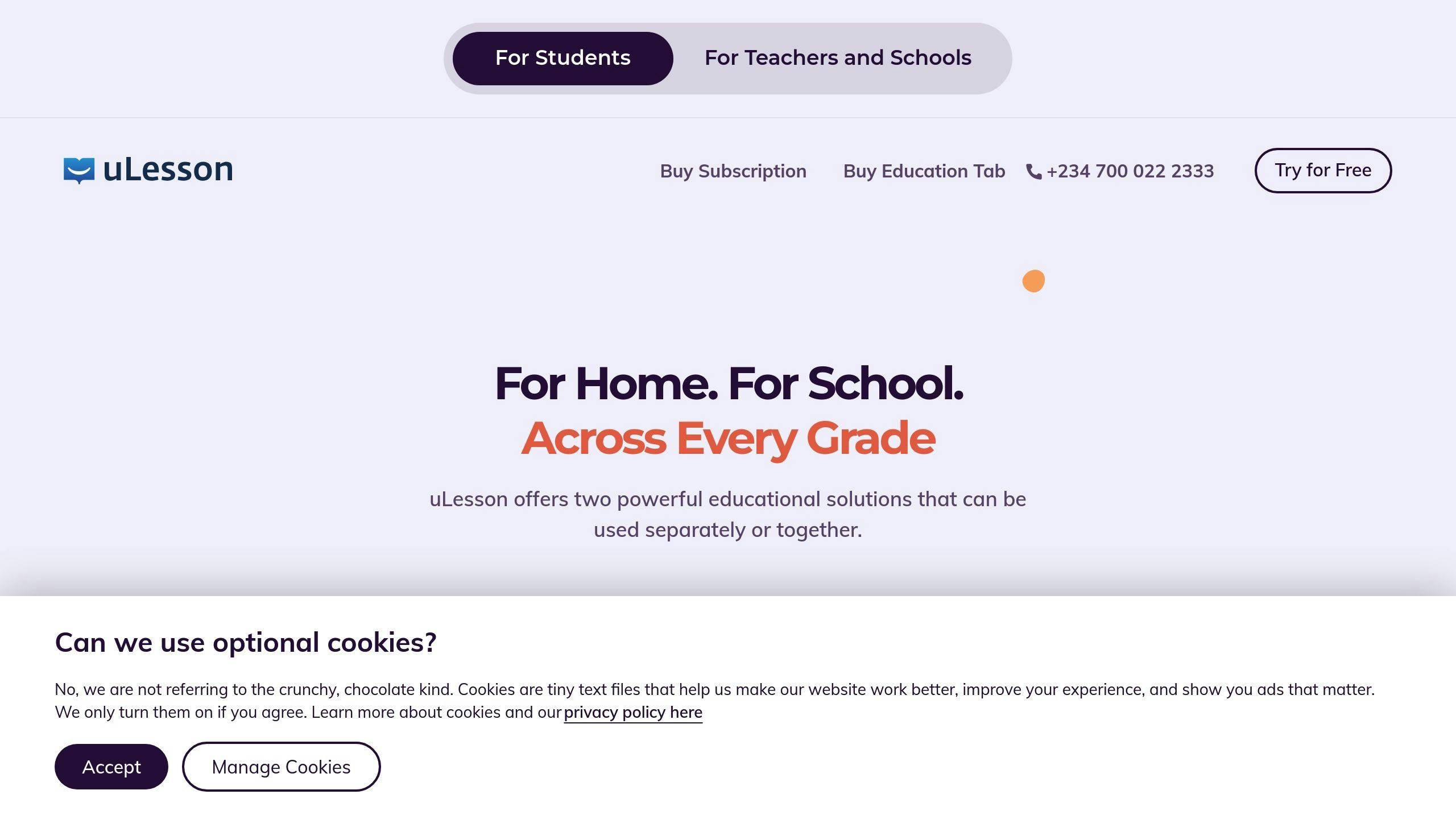
uLesson is a mobile-based education platform designed to bring quality learning to students across Africa. Its video lessons follow West African curriculum standards and cover key subjects like mathematics, science, and languages. One standout feature is its offline mode, allowing students in remote areas to access lessons without needing an internet connection. Interactive quizzes are also included to help students solidify their understanding and stay engaged.
The platform tackles the unique educational challenges in Africa through several key strategies:
- Curriculum Alignment: Lessons are tailored to West African educational standards.
- Engaging Tools: Combines video lessons with quizzes to enhance learning.
- Offline Availability: Reduces the need for constant internet access, cutting data costs.
- Mobile-Friendly Design: Optimized for smartphones, the primary device for many learners.
By focusing on issues like limited infrastructure and unequal access to education, uLesson is helping to level the playing field. Its mobile-first approach brings quality learning resources to underserved areas, aligning with the African Union’s Agenda 2063 goals for education.
uLesson is a great example of how mobile technology can break down educational barriers in Africa. With its focus on accessibility, interactive features, and region-specific content, it’s helping shape a better future for education across the continent.
Conclusion
Tuteria, AltSchool Africa, Codepym, Teesas, and uLesson are reshaping education across Africa through mobile EdTech solutions. By tackling issues like teacher shortages and limited resources, these platforms are changing how education is delivered on the continent.
The growth of mobile EdTech in Africa is making learning more accessible and tech-focused. These platforms are also breaking language barriers by providing content in both English and local languages, while emphasizing practical skills to combat youth unemployment.
By expanding access, teaching relevant skills, personalizing learning experiences, and collaborating with industry partners, these startups are helping to address educational challenges. Their success and increasing user numbers highlight the shift toward mobile-first education approaches that aim to close educational gaps in Africa.
For the latest updates on African EdTech and emerging innovations, check out Tech In Africa for detailed insights into the startups shaping the continent’s educational landscape.
Related posts
- Top 7 EdTech Startups for Digital Skills in Africa
- How Mobile Social Platforms Drive African Startups
- How Digital Skills Training Boosts African Startups
- How African Startups Retain Top Tech Talent



